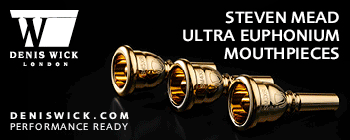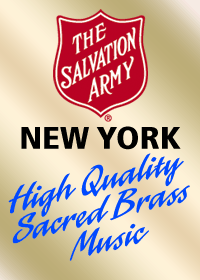In Memoriam Elgar Howarth

The death has been announced of Elgar Howarth, one of the most significant figures to be associated with the 20th century brass band movement. He died on Monday 13th January, aged 89.
Dr Robert Childs paid tribute to Howarth’s legacy stating: “Like many others I was saddened to hear that Elgar Howarth has passed away. My sincere condolences go out to his family. He will be sadly missed by all who knew him.
“I will always remember him as a truly inspirational conductor and educator. I was privileged to have played under him at Grimethorpe Band and worked with him when he was Artistic Director of the National Youth Brass Band of Great Britain.
“Of course, he was much more than that; he was a truly gifted musician who was phenomenal at everything he did in music, from trumpet playing (a founder member of the Phillip Jones Brass Ensemble and principal trumpet with renowned professional orchestras) to conducting the most complicated modern opera!
“With his composing skills he invented a whole new genre of brass ensemble music and introduced brass bands to world class contemporary music. He also had the charm and influence to persuade world class musicians such as Harrison Birtwhistle, George Benjamin, Han Werner Henze, Toru Takamitsu and many more to compose for brass band.
“He was equally at home writing light music under the guise of W. Hogarth Lear (who can forget ‘Cops and Robbers’ and ‘Pop goes the Posthorn’) or producing wonderfully crafted pieces in his own name like ‘In Memoriam RK’ and ‘Songs for BL’. I was particularly honoured when he wrote a Euphonium Concerto for me called ‘Stories of Saroyan’ which we premiered with the NYBBGB, the music is so emotional and written with passion about his Grandchildren.
“The fond memories I have of him will live with me forever and his legacy of iconic recordings will live beyond that. His recording project, 'The History of Brass Bands' was, and still is so informative and learned. His 1970 LP Decca recording, Grimethorpe Aria has never been equalled. He was responsible for brass bands performing at the BBC Proms! I also remember how proud he was of his son Patrick and how they co-wrote the brass band book, 'What a Performance!'
“I think I'll remember him most for the wonderful and ground-breaking tours he took us (Grimethorpe Band) on to places such as Italy, France, Yugoslavia, USA, Australia and the unique music he introduced us to. We all got to know him personally and discovered his generosity, wit and humility.
“I learned so much personally from him, and his teachings influenced and guided me through my playing and conducting career in bands. Rest in Peace 'Mr Howarth' and thank you for all you did for me and the brass band movement.”
The following details were released to media outlets by Elgar Howarth’s representative agency:
Elgar Howarth was born in Cannock in 1935. He grew up in Eccles, Salford, Greater Manchester, and attended Eccles Grammar School. He was taught the cornet and trumpet by his father, Oliver, and won the Alexander Owen Scholarship in 1951. With his brother, Stanford, a trombonist, he played in the Barton Hall Works Band.
Elgar studied music at Manchester University and the Royal Manchester College of Music, where he studied composition and trumpet. He was a founding member of New Music Manchester with Harrison Birtwistle, Peter Maxwell Davies, Alexander Goehr and John Ogdon.
After National Service he joined the Covent Garden Orchestra before becoming the principal trumpet at the Royal Philharmonic Orchestra, of which he also became chairman. In addition, he appeared frequently with the London Sinfonietta as a trumpet player before returning as a regular guest conductor.
Although not a regular session musician, he arranged and performed, as one of four trumpeters, the fanfares for The Beatles' song 'Magical Mystery Tour' in 1967.
He was closely associated with the Phillip Jones Brass Ensemble, both as a trumpeter and as a composer and arranger. His arrangement of Mussorgsky's Pictures At An Exhibition was widely regarded as a breakthrough achievement in brass chamber ensemble repertoire.
His conducting career began in the early 1970's when he conducted the Royal Philharmonic Orchestra for Frank Zappa's film and album, 200 Motels. Around this time he returned to his roots and began working with brass bands, in particular Grimethorpe Colliery Band.
He fast became an influential force in the banding world. He commissioned and arranged works by contemporary composers, including William Walton, Harrison Birtwistle, Hans Werner Henze, and Toru Takemitsu, as well as writing his own works for band, many of which have become standard pieces in the repertoire.
He took Grimethorpe and Black Dyke Mills Band to the BBC Proms in 1974 and 1975, the first time brass bands had appeared at the festival.
He appeared regularly with all the leading British orchestras both in the concert hall and in the recording studio. An enthusiast for contemporary music since his Manchester student days, he was particularly associated with the composers Harrison Birtwistle and Gyorgy Ligeti.
Abroad, mostly in Europe, he appeared at major festivals and conducted many well-known orchestras including the Munich Philharmonic Orchestra, Bayerischer Rundfunk Symphony, Zurich Tonhalle, Berlin Radio Symphony, Stockholm Philharmonic, Swedish Radio Symphony, Residentie Orchestra, Seattle Symphony, French National Radio Symphony, Orchestre Philharmonique de Radio France, Austrian Radio Orchestra and Royal Flanders Philharmonic.
He also toured Australia, conducting the Sydney, Melbourne and Queensland Symphony orchestras and appearing at the Brisbane Biennial. He toured Japan with the London Sinfonietta, an orchestra he has conducted regularly both in the UK and abroad from the beginning of his career.
His operatic achievements covered a wide repertoire and included the world premiere of Ligeti's Le Grand Macabre at the Stockholm Royal Opera, followed by productions of the same work in Hamburg, Paris and London.
Other productions include La Clemenza di Tito and Peter Grimes in Stockholm, I Pagliacci and Chaynes' award-winning Erzsebet in Paris, The House of the Dead and Lulu in Gothenburg, Tosca in Oslo, Wozzeck in Prague, King Priam and Billy Budd in Flanders, The Rake's Progress in Brussels, Billy Budd in Cologne and Boris Godunov at the Australian Opera.
He conducted Peter Grimes with the Royal Opera House Covent Garden at the Savonlinna Festival.
In 1985 he made his debut at Covent Garden with King Priam, which he later performed with the same company at the Athens Festival. For Glyndebourne he has conducted The Barber of Seville, Falstaff, Nigel Osborne's The Electrification of the Soviet Union and Birtwistle's The Second Mrs Kong and The Last Supper.
He conducted the world premiere of Birtwistle's Gawain at Covent Garden in May 1991 and the revivals in 1994 and 2000, a recording of which has been released by Collins Classics.
For Garsington Opera he has conducted Arabella, Intermezzo, Die Schweigsame Frau, a double bill of Sarka and Osud, Daphne, Cherevichki, Die Ägyptische Helena, Die Liebe der Danae and Genoveva. He conducted Figaro's Wedding at the inaugural season at Grange Park Opera.
For English National Opera he conducted Boris Godunov and Hansel and Gretel, as well as contemporary works: Birtwistle's The Mask of Orpheus, Tippett's King Priam, Paol Ruder's The Handmaiden's Tale, Henze's The Prince of Homburg and Zimmermann's Die Soldaten. For his work on these last two productions Elgar Howarth won the 1997 Olivier award for 'Outstanding achievement in Opera'.
He was principal Guest Conductor of the English Northern Philharmonia from 1985-1989. In addition to conducting many concerts with this orchestra, he appeared frequently with the sister company, Opera North (where he was music advisor from 1996 — 99), in repertoire which has included Jenufa, Nabucco, La Boheme, Katya Kabanova, A Midsummer Night's Dream, The Marriage of Figaro, the British premiere of Nielsen's Masquerade, The Jewel Box, Billy Budd and Arabella.
After his retirement from conducting, he devoted himself to composing especially for brass instruments. His works were published by Chester Music and Novello, and have been widely recorded.













